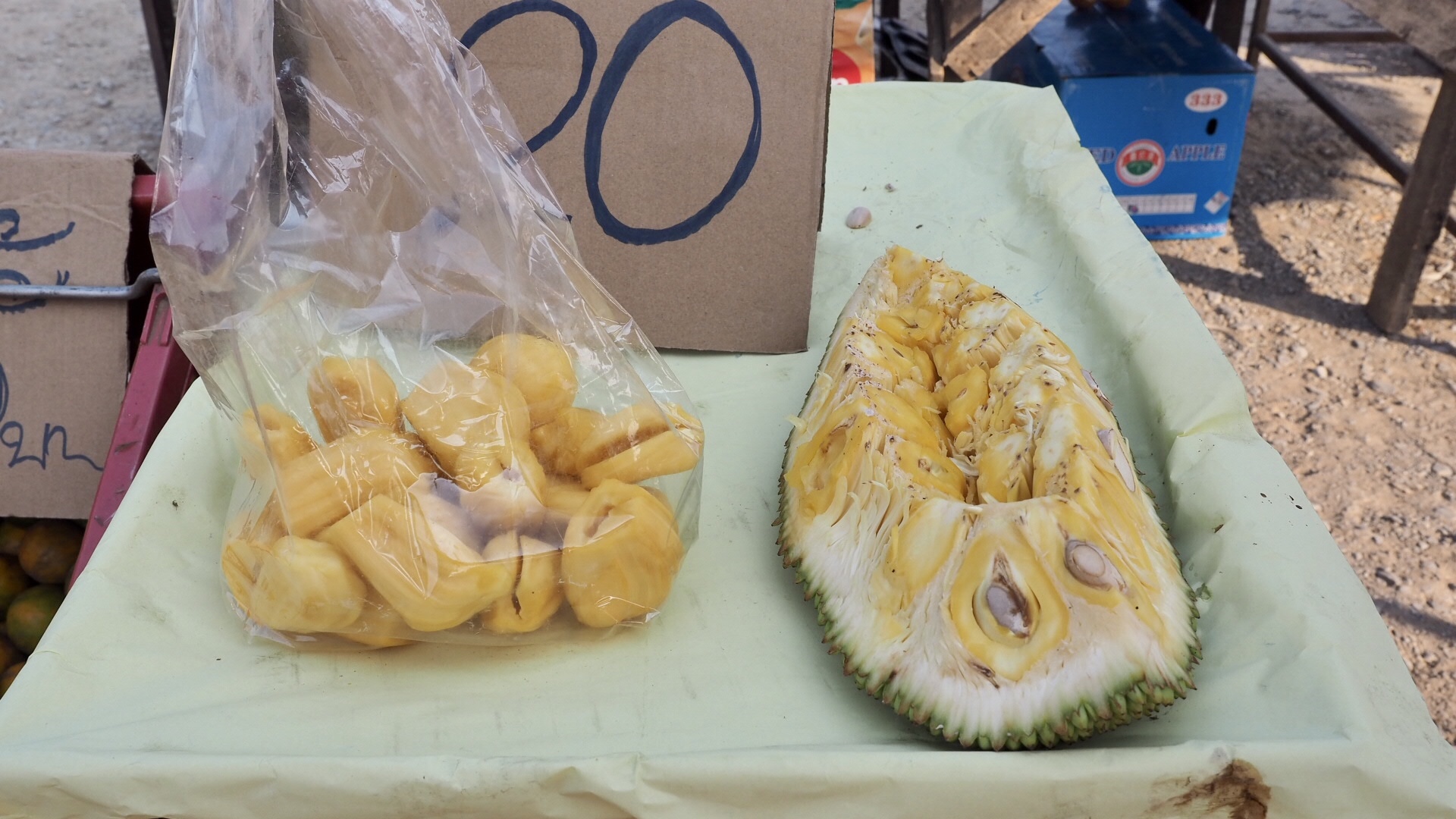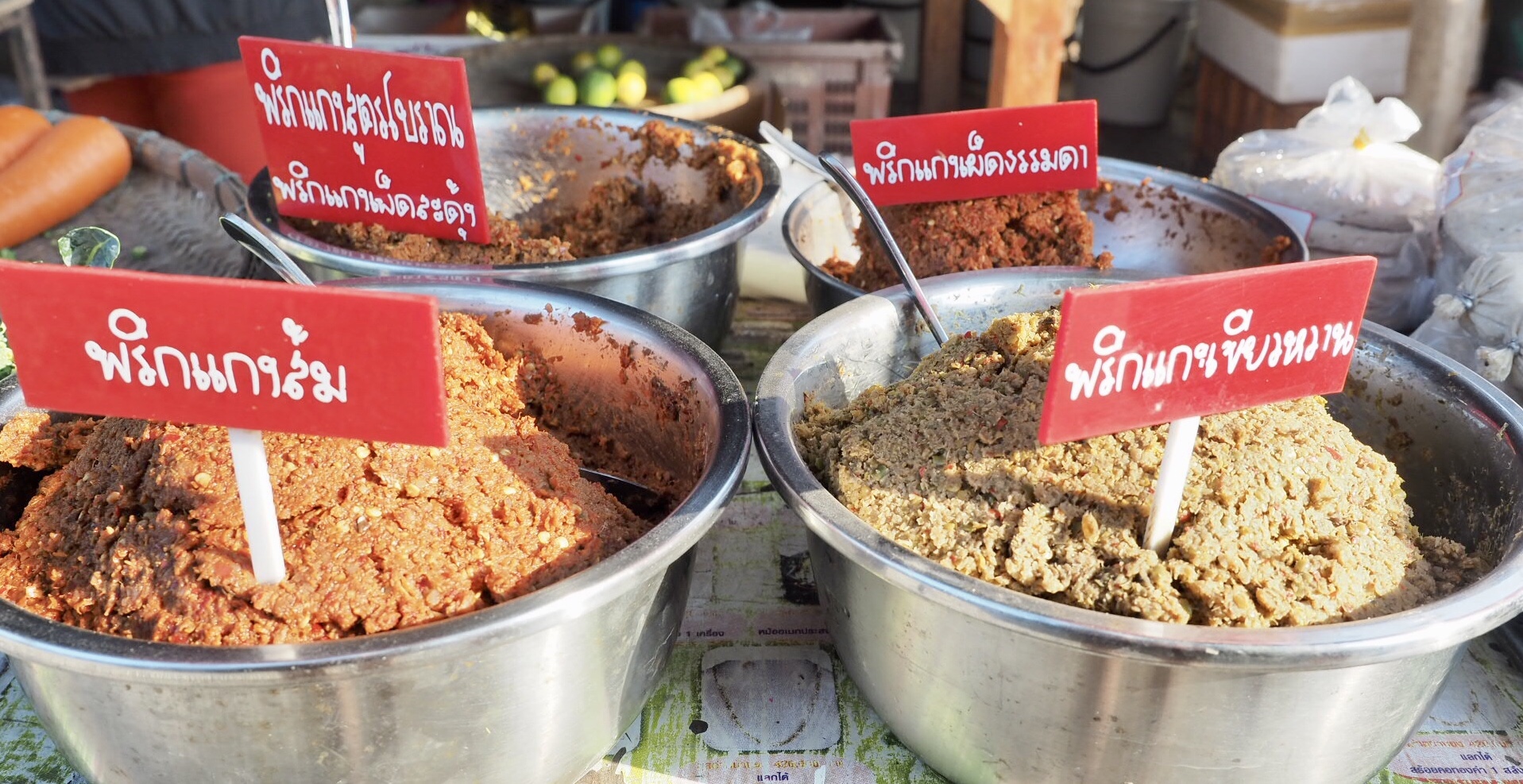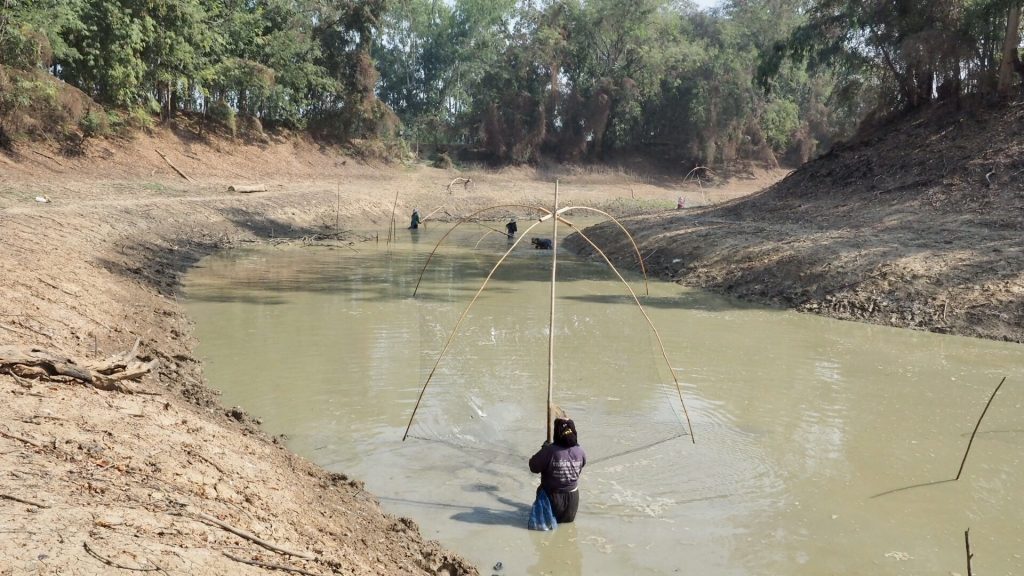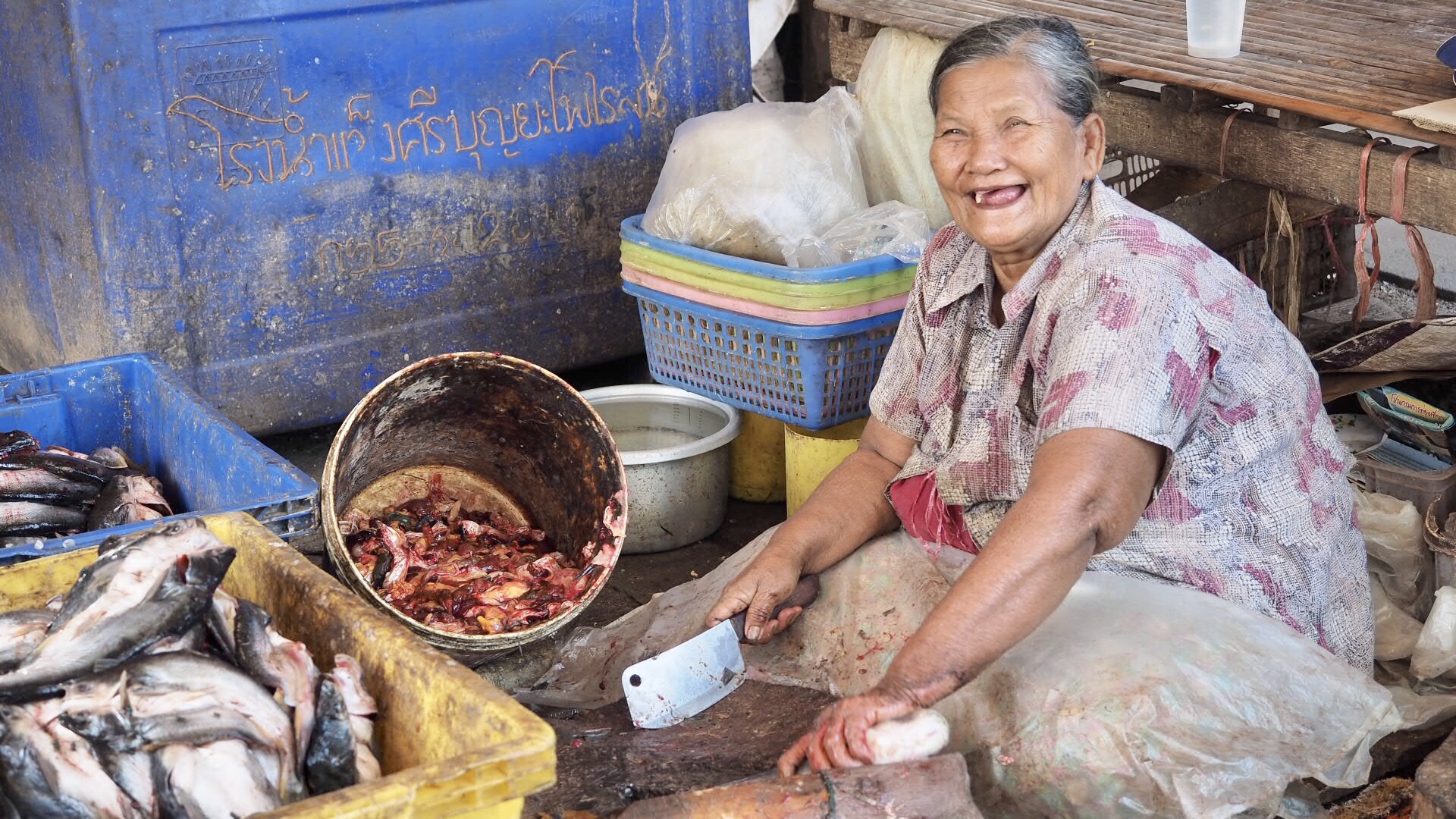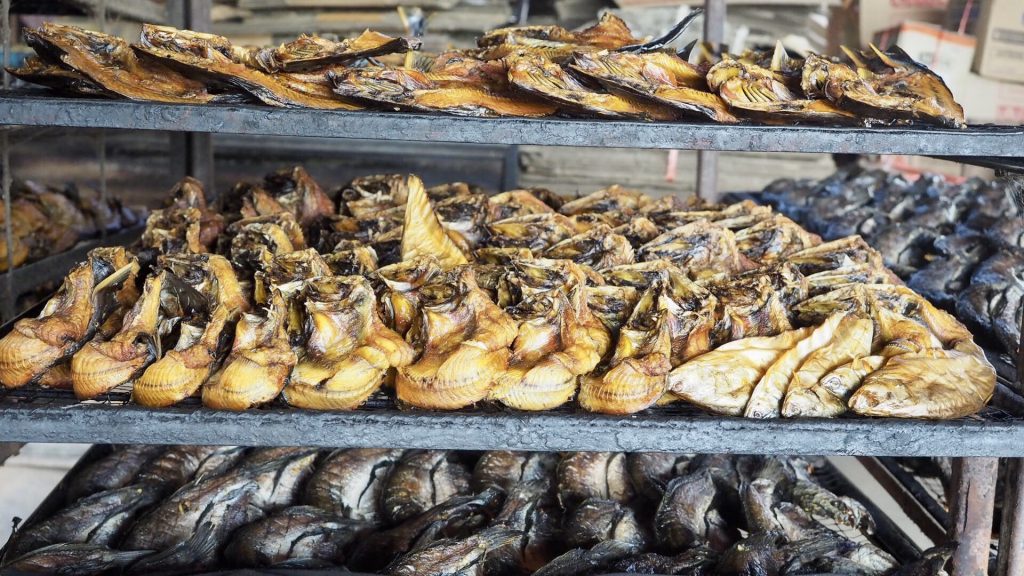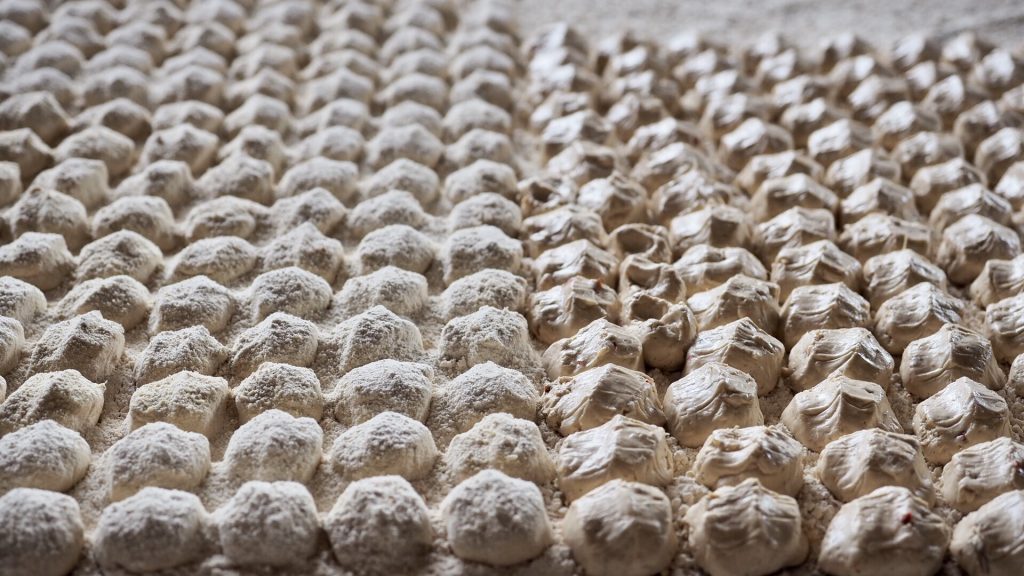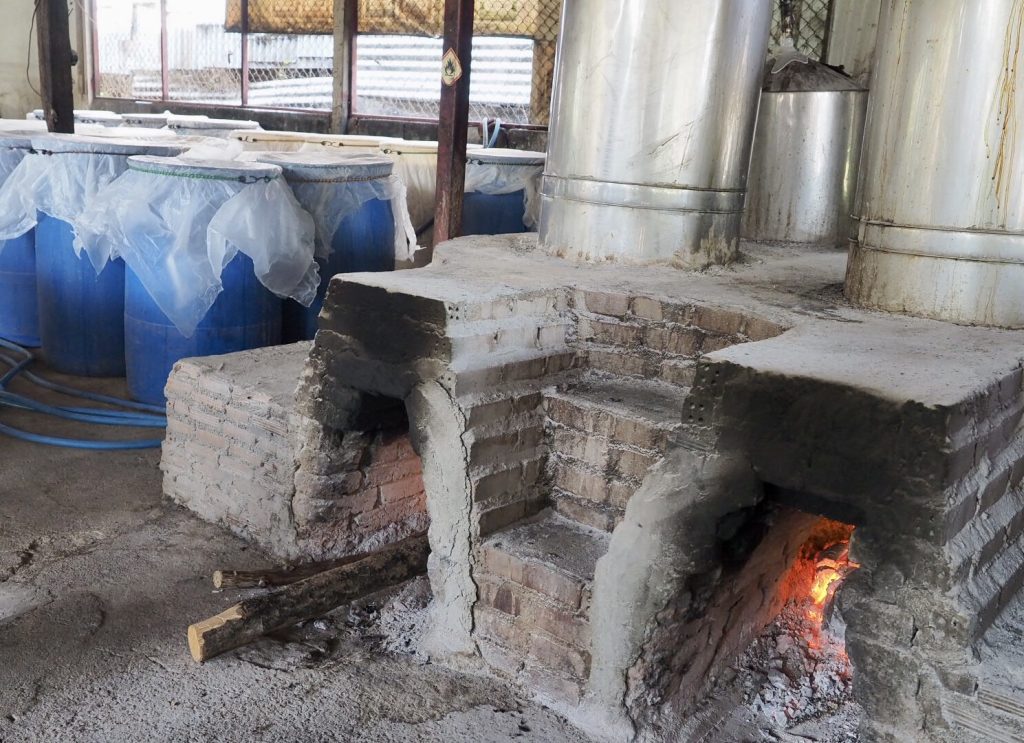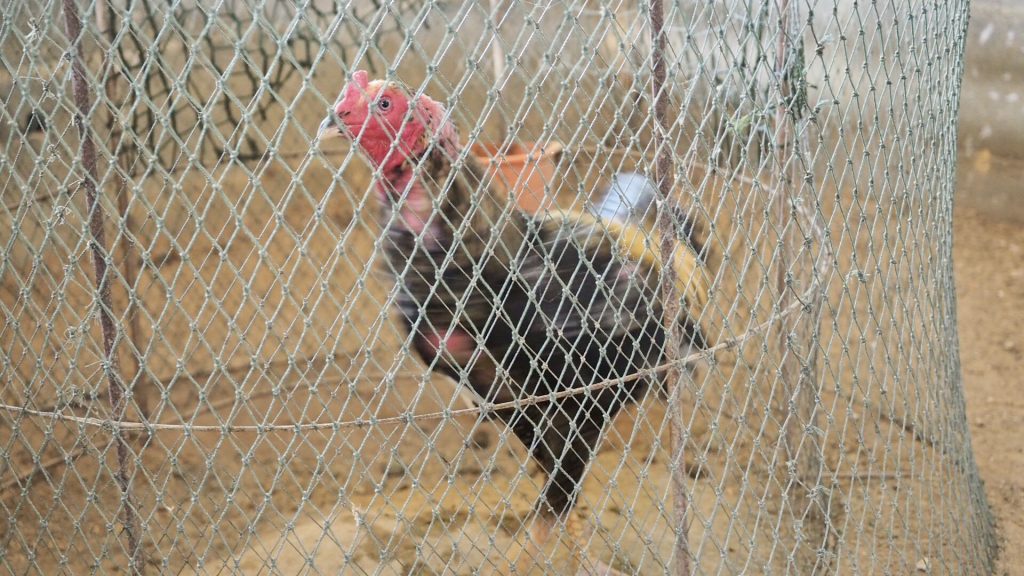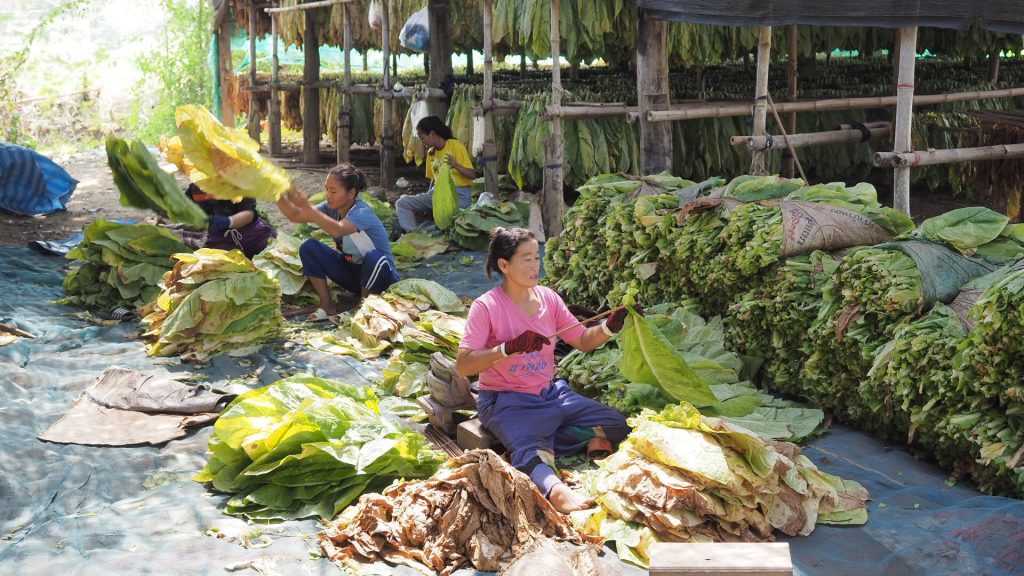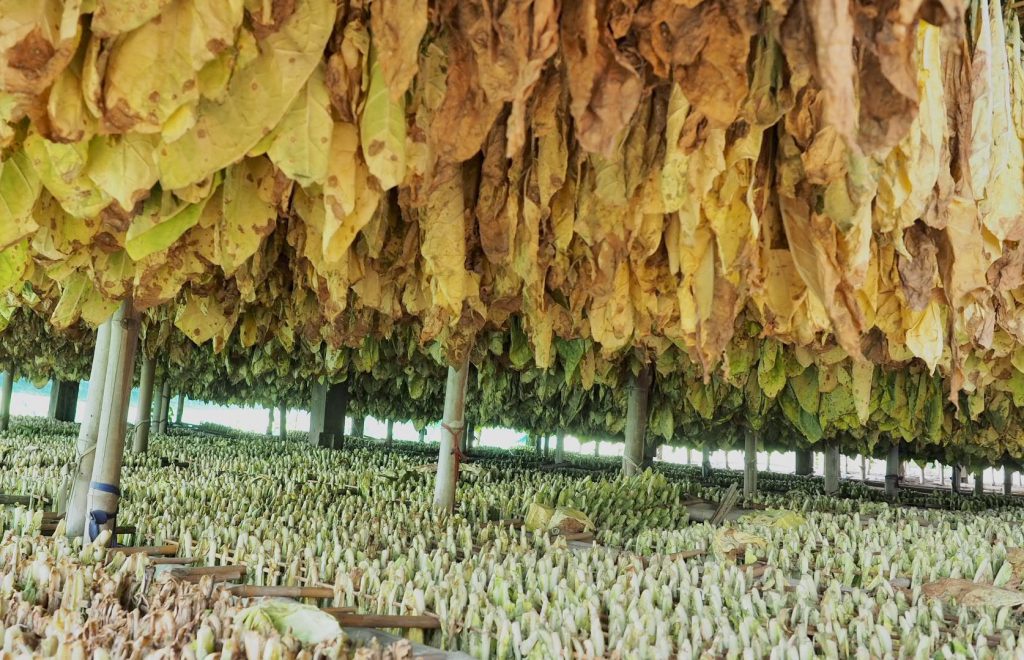From Bangkok we headed north to explore the ruins of old kingdoms. First we went to Ayutthaya, the capital of the former Siamese kingdom from the middle of the 14th centrury to the 18th century. Today there are the ruins of many temples to be visited. Some are rather close together but there are many scattered all over town. To make the most of it we rented bicycles. We had bought a ticket valid for a whole bundle of temples instead of paying for each individually and, of cause, we had to see them all (challenge acceptet!) which kept us busy the whole day. We were very glad for our bikes, as it is much nicer to bike than to walk.
The old temples are mostly ruins with few that are redone. It is fun to walk around there and to discover them. The chedis are built with red bricks creating the overall shape and then the mortar is applied on top with the detailed decorations.
In the afternoon we did a boat tour. The city center is surrounded by a river, essentially making it an island. For dinner we went to the night market where various food and dishes are sold. You can get almost everything from mostly deep-fried snacks to a whole fish or soup, which you can carry home in a plastic bag. The market is not really meant to sit down there so we bought a few things, including a fish, and went back to our guesthouse where we could sit down and had plates and cutlery.
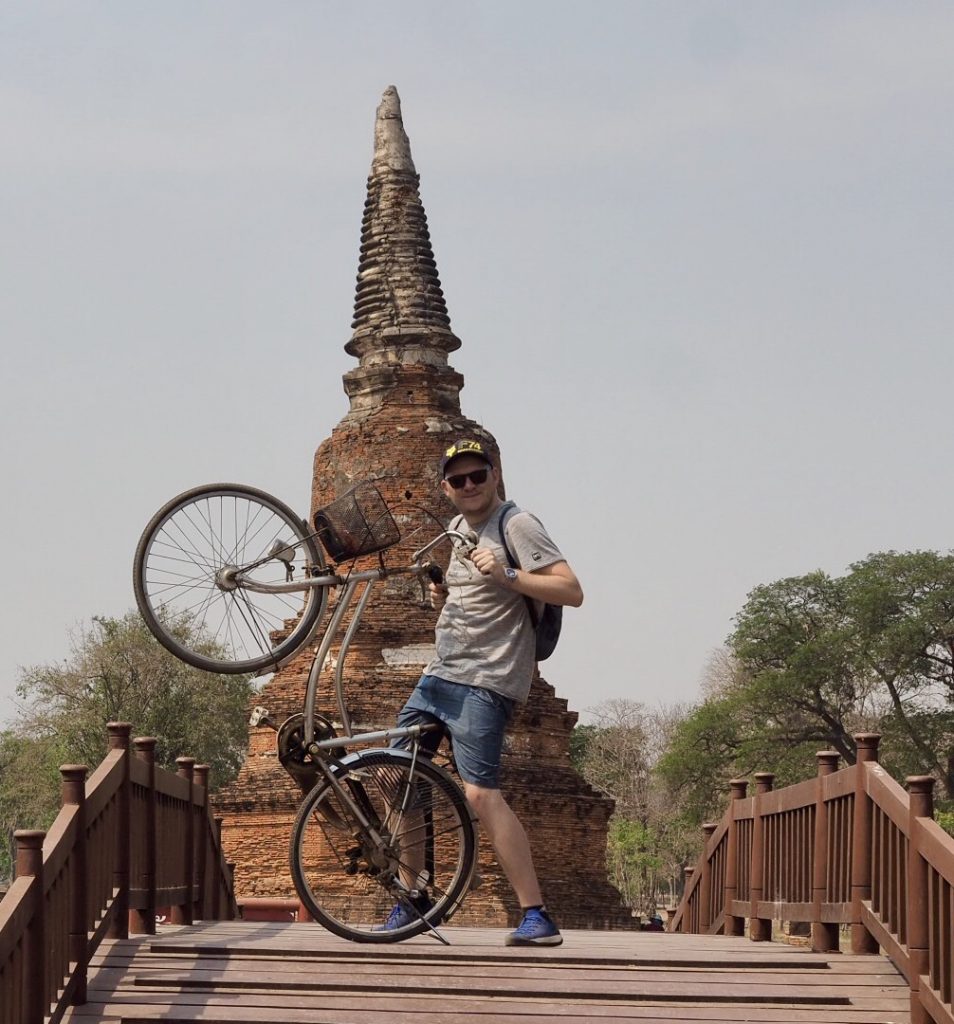
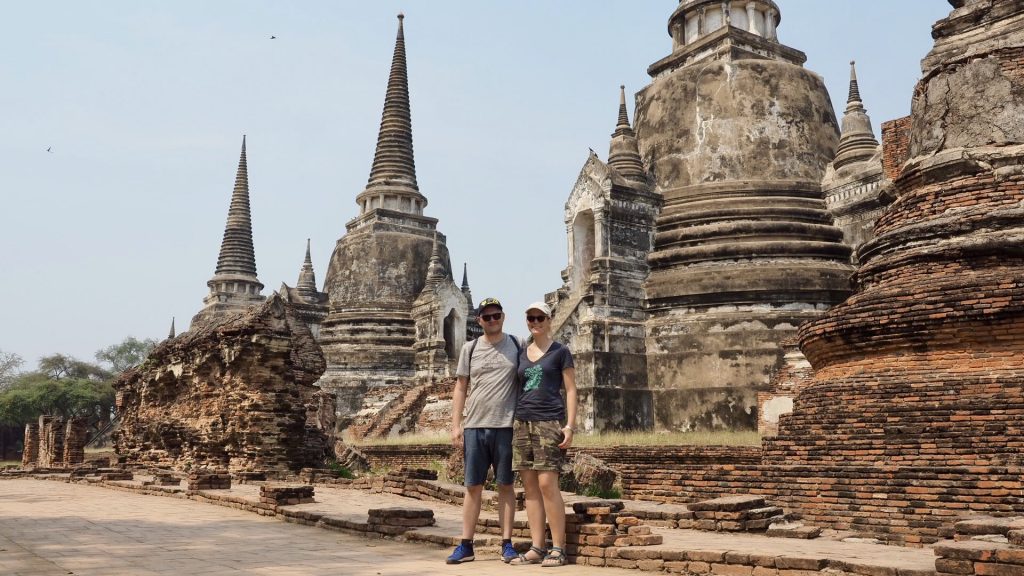
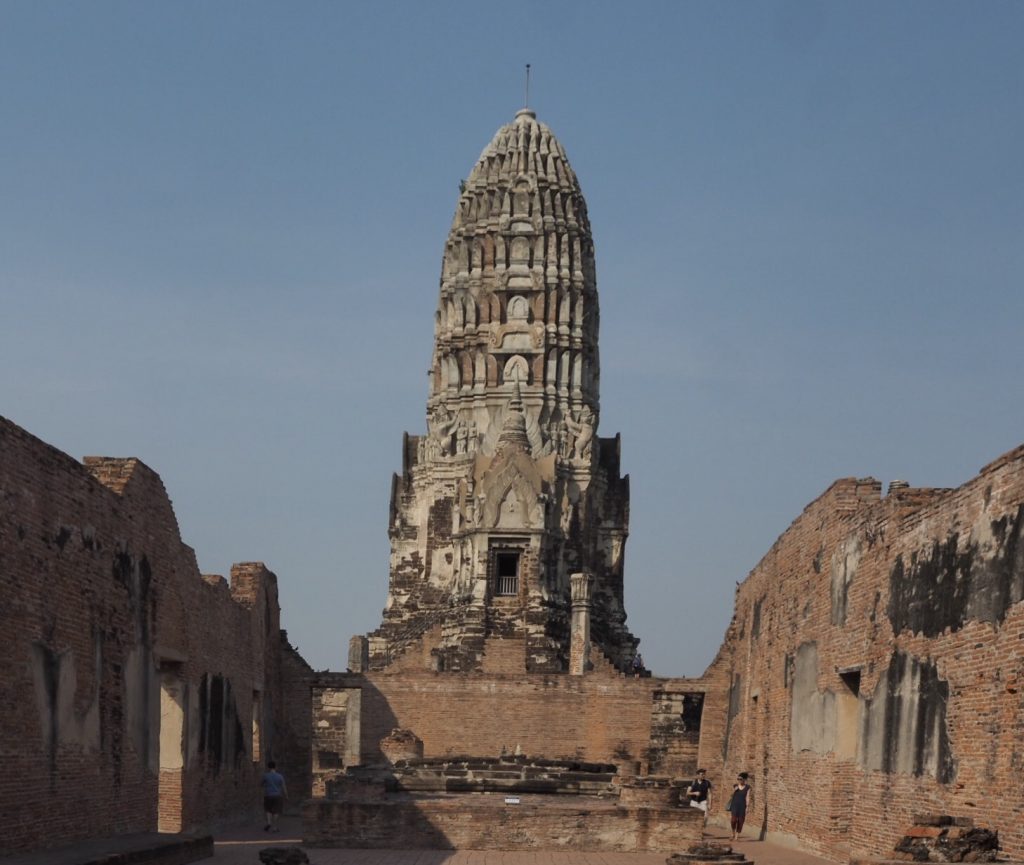
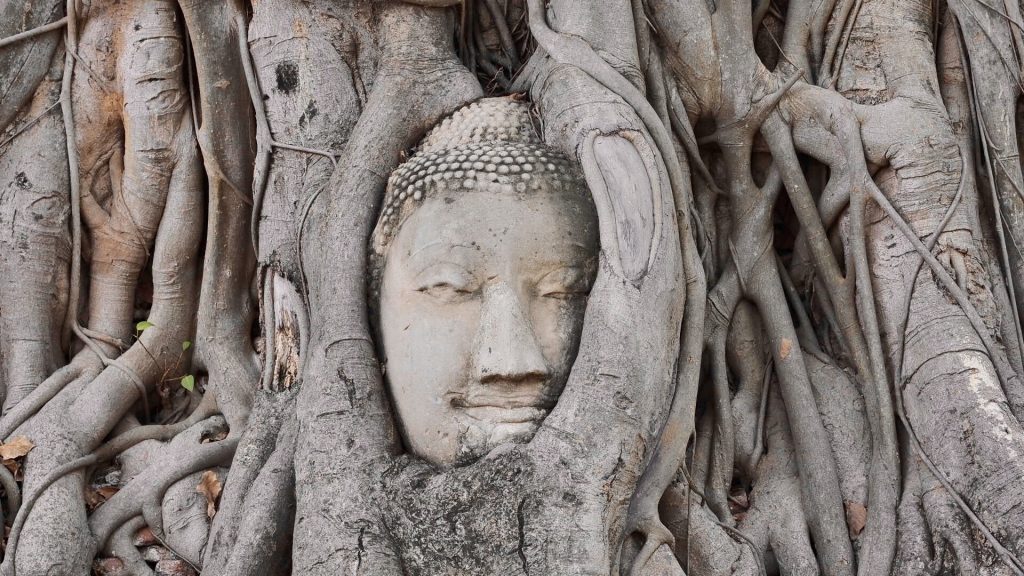
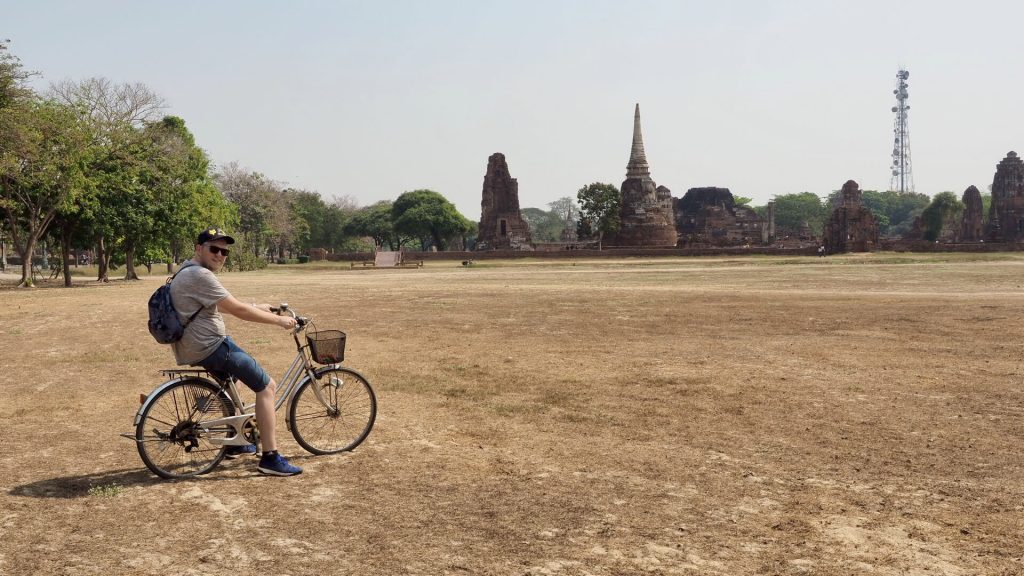
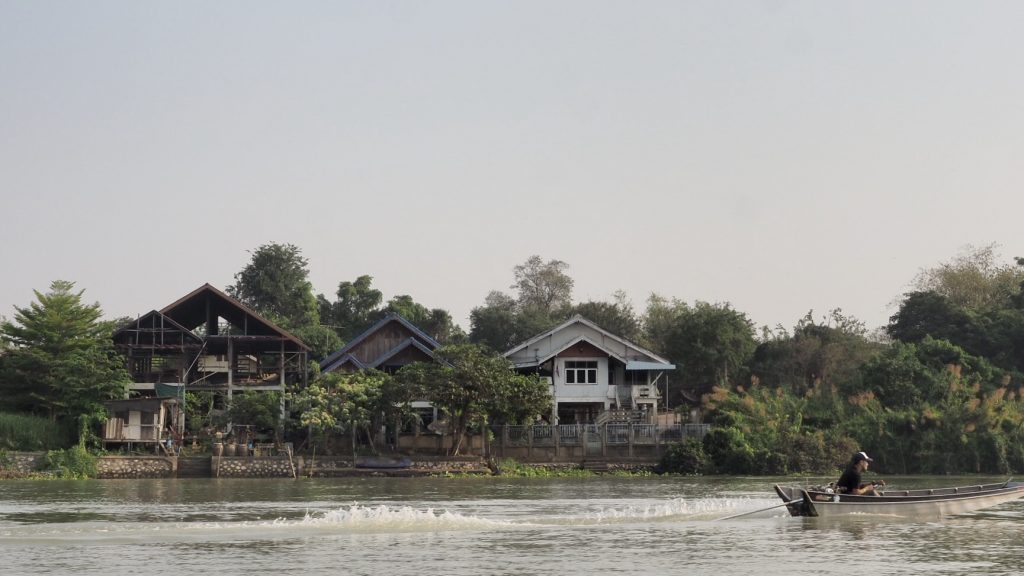
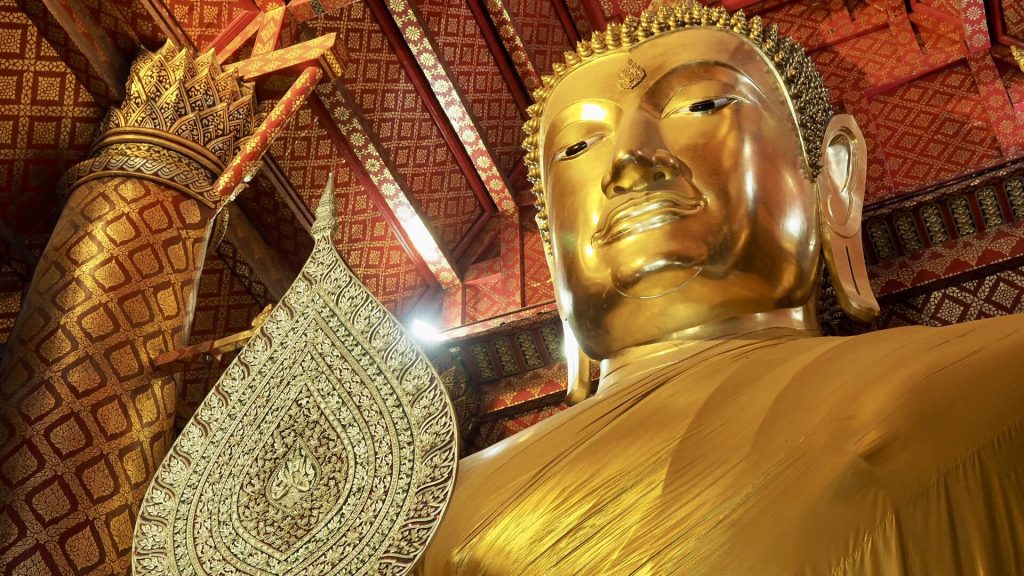
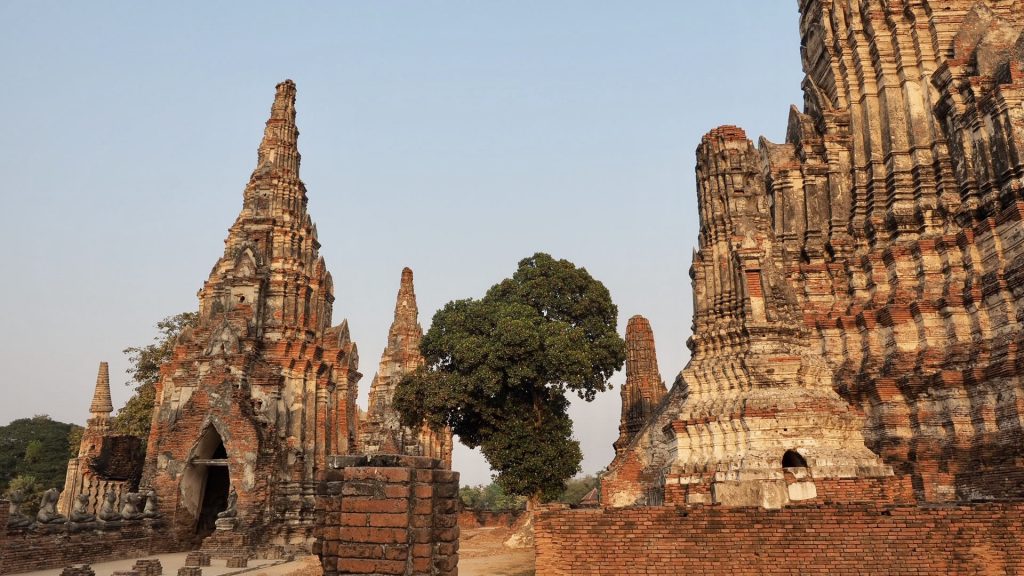
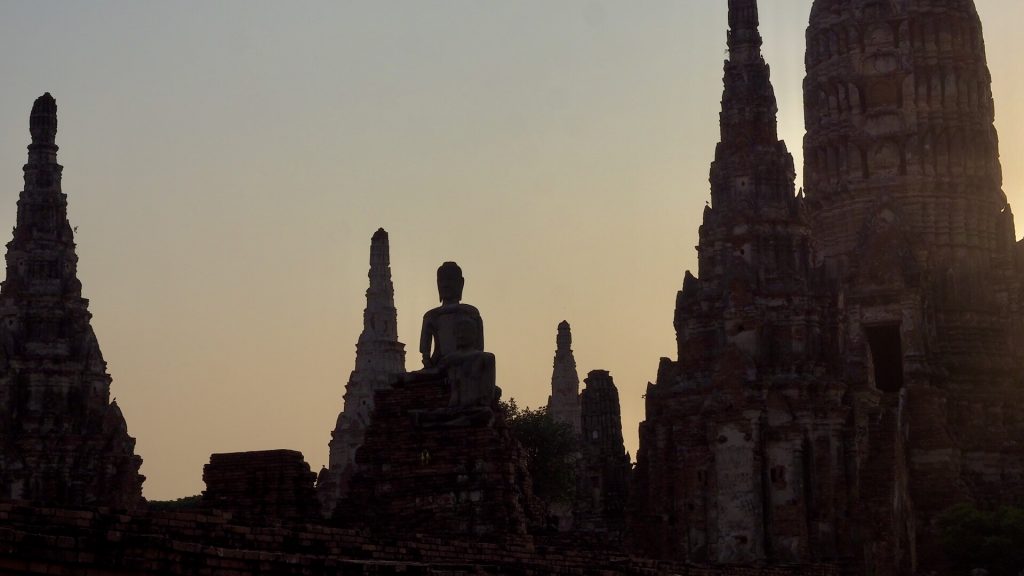
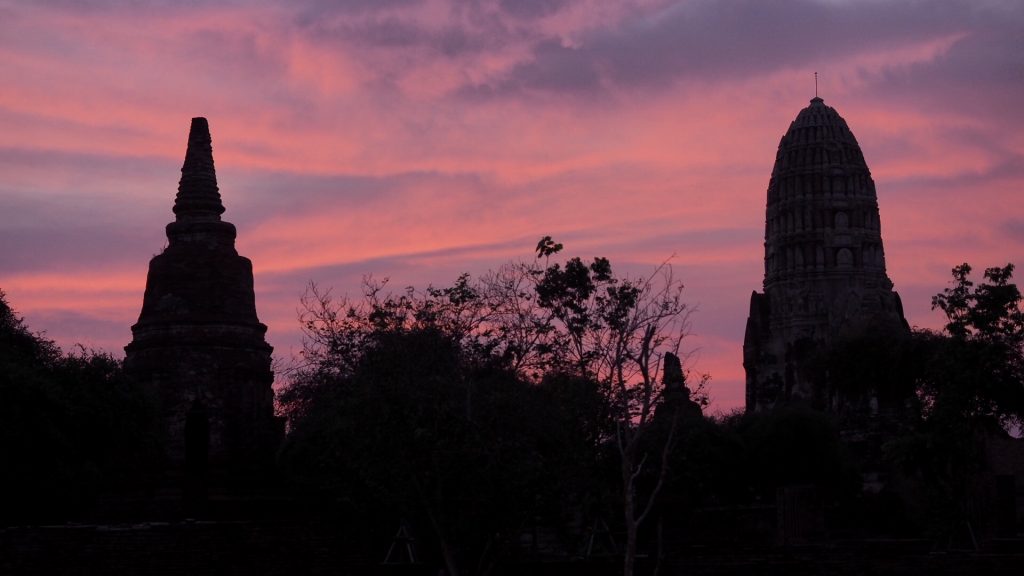
From Ayutthaya we took the train and a bus to Sukhothai. It was basically the predecessor of the Ayutthaya based kingdom and became an independent kingdom from the Khmer in Cambodia at the end of the 13th century. In little over the hundred years of their rule an impressive number of large temples and palaces were built. It is all assembled in what is Old-Sukhothai today, as there is a new town as well, about 12 km away. We stayed for two full days and spent one of them exploring the Historic Park. There are temples and ruins everywhere but the main area is divided into three zones which all require an individual entrance fee of 100 Baht each. We decided two out of three is enough for us, because at some point its hard to appreciate the building properly anymore. We went to see the temple the Wat Mahathat, the most important temple at the time and consequently largest and the Wat Si Chum with a giant Buddha statue. Of cause, there were many others but these were the most impressive.
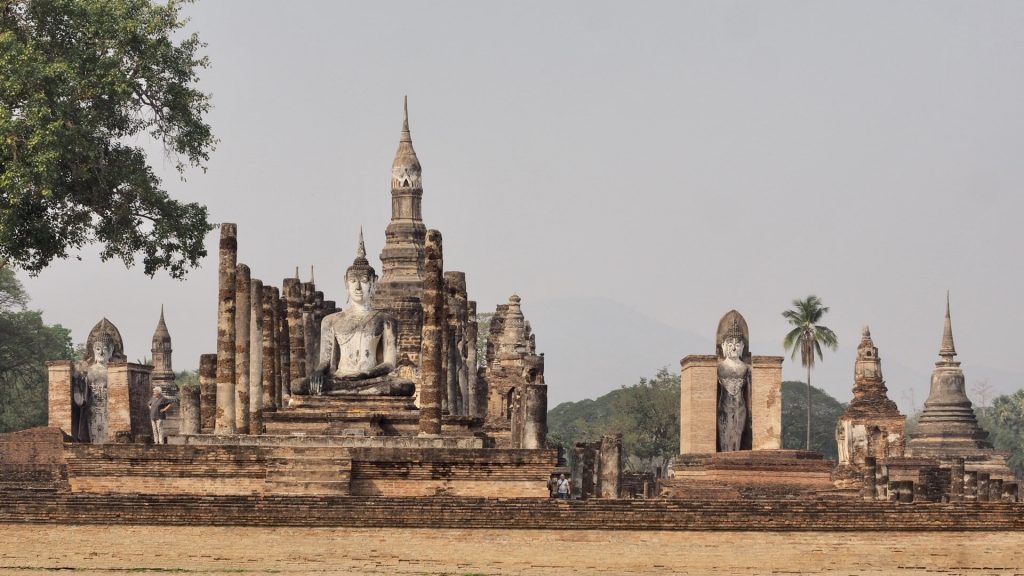
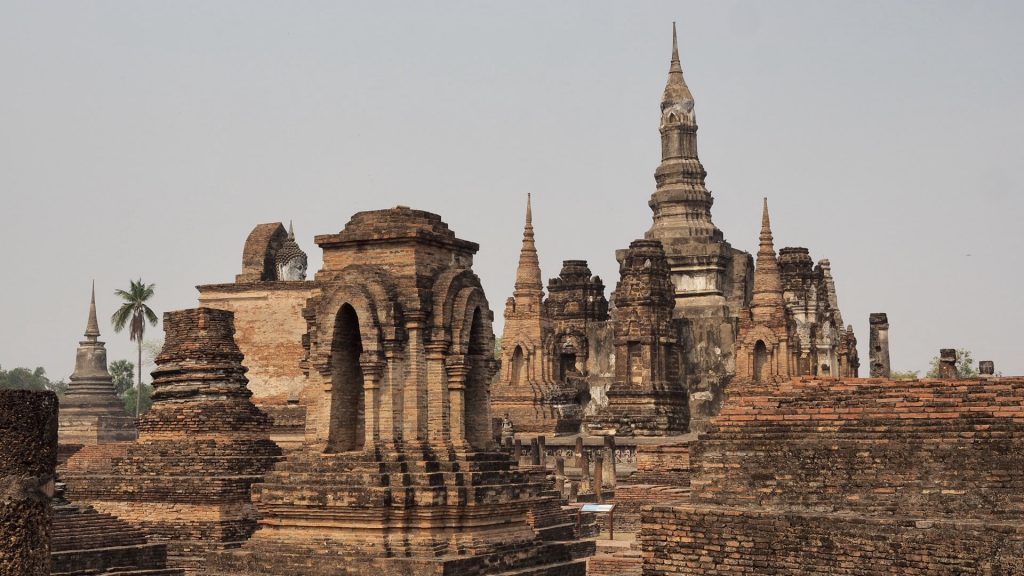
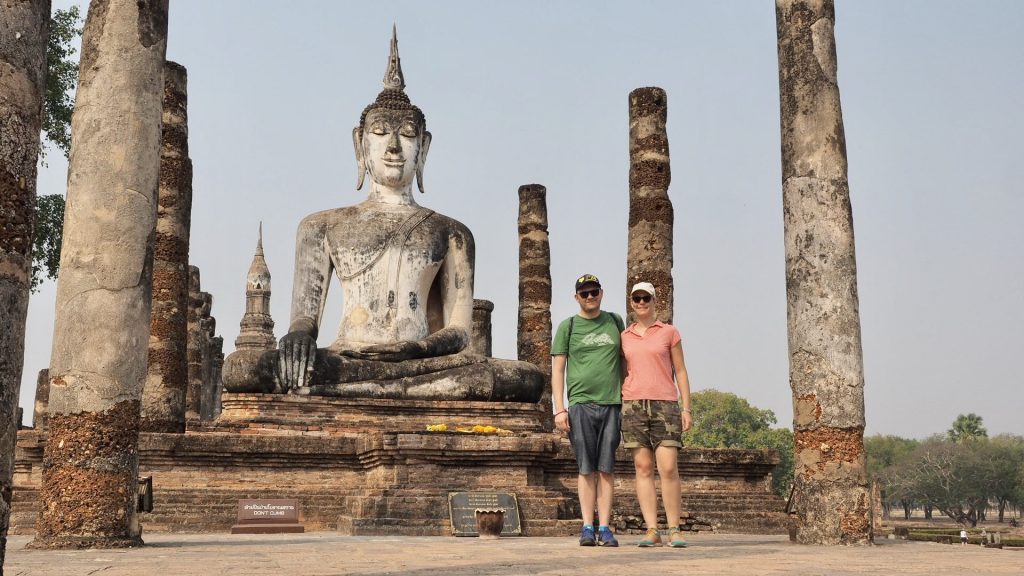
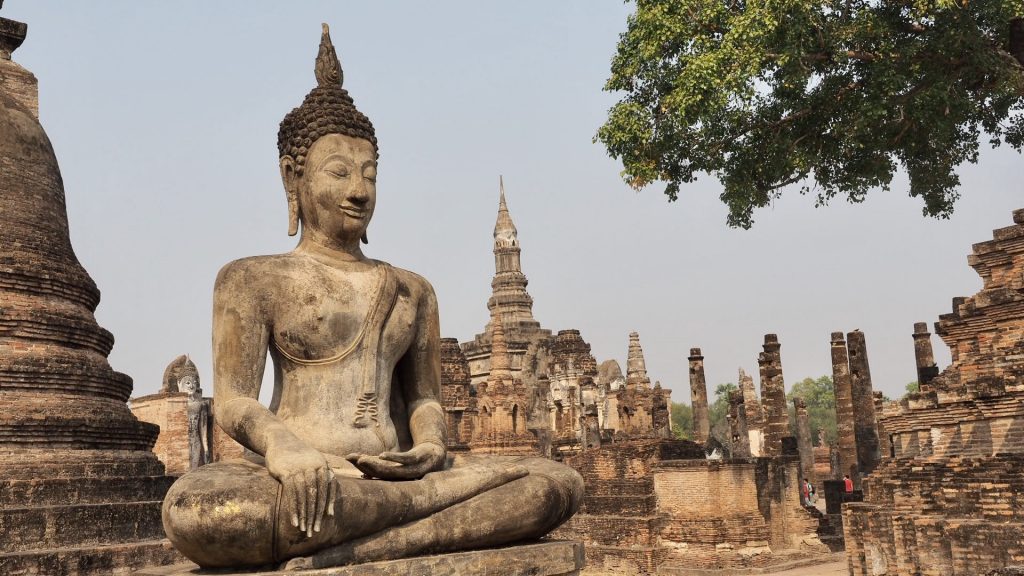
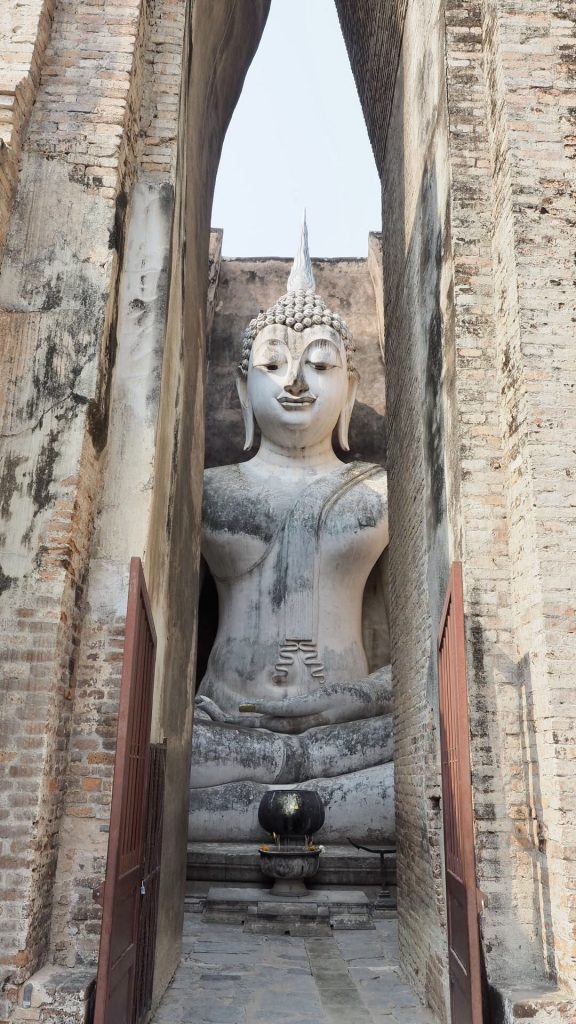
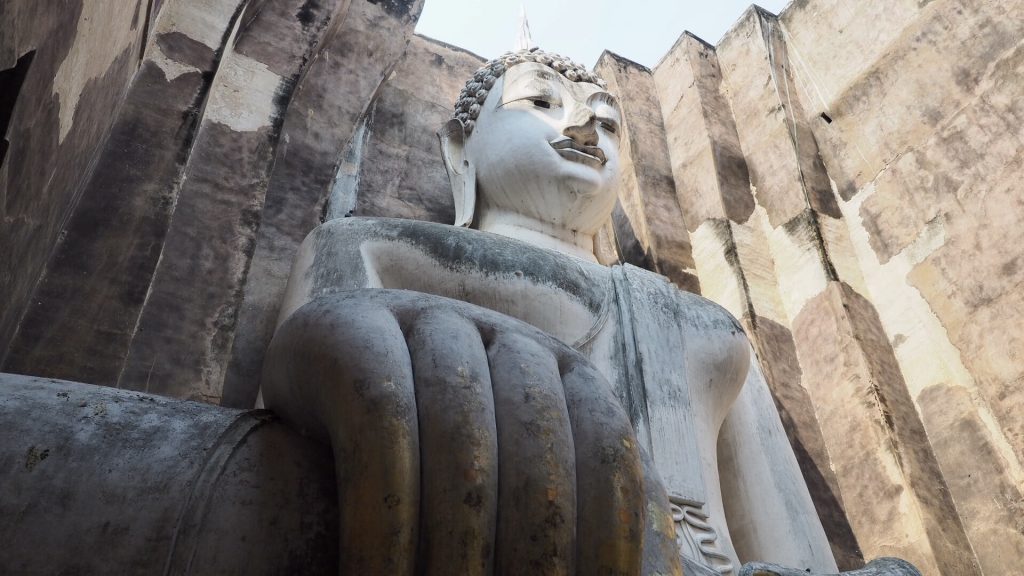
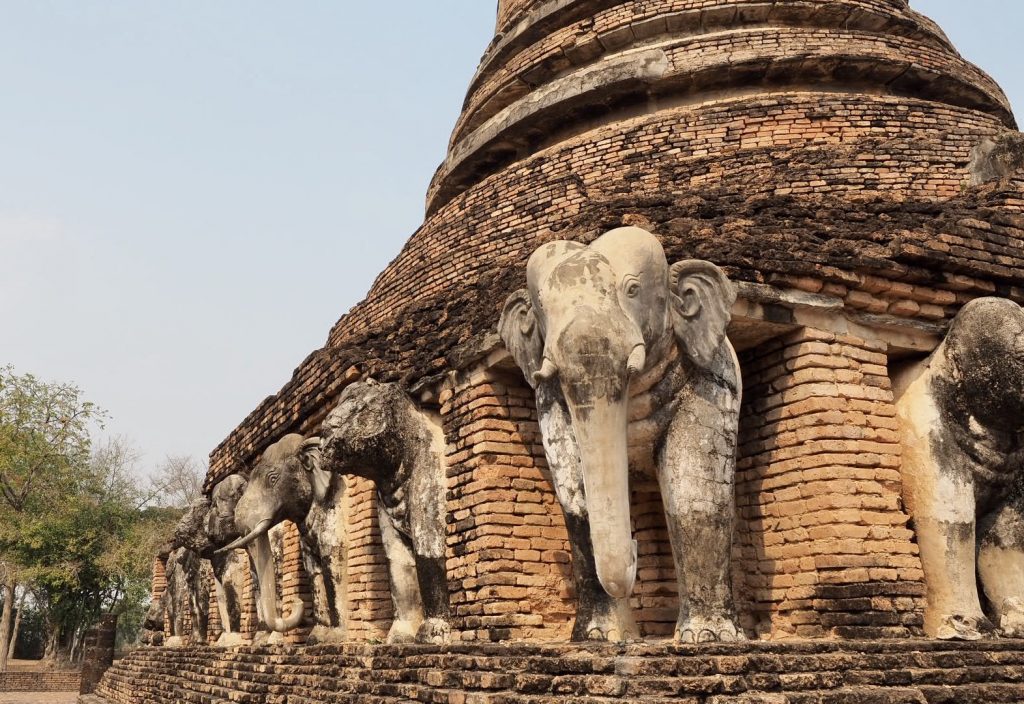
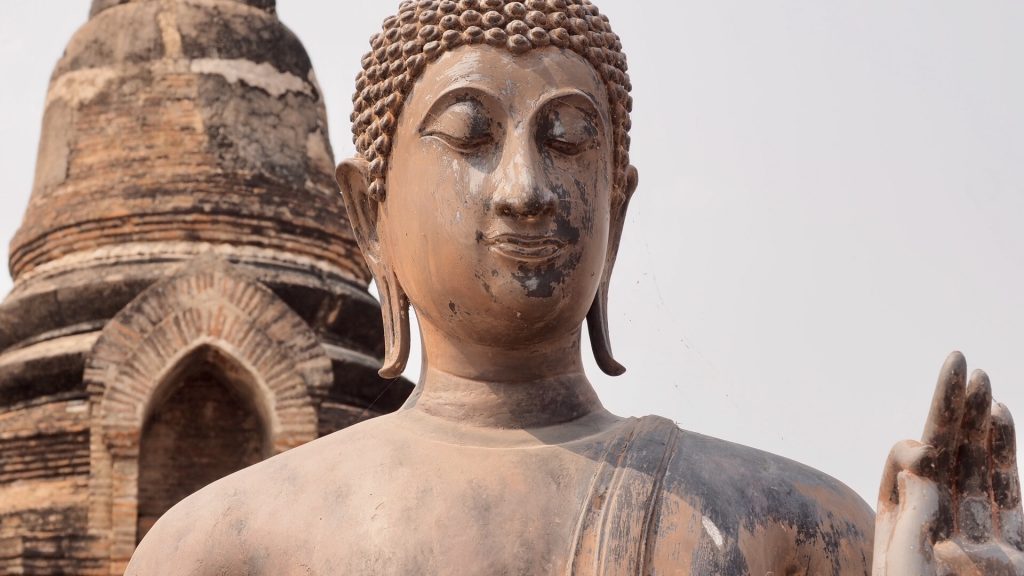
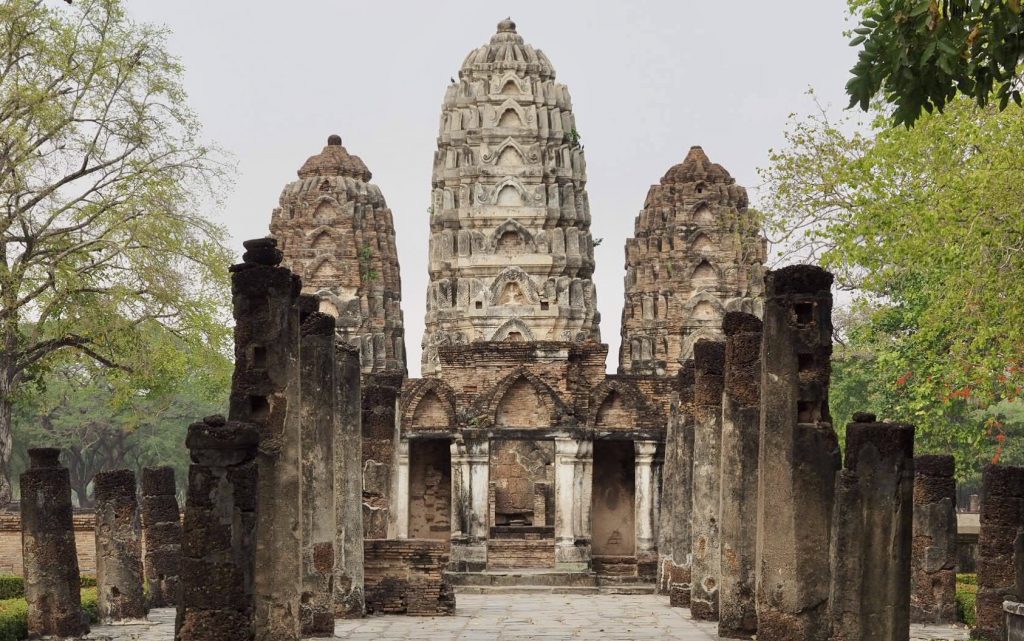
We had decided to stay two days in Sukhotai and Chris wanted to catch up on some work the second day. As I was not so far behind, I decided to do a bike tour through the countryside instead. Luckily another traveler was looking for an activity for the day as well since the tours have a two-person minimum. Over the course of seven hours we explored the countryside with our guide Kai and visited may different places: The morning market, where you can buy fruits, vegetable and all kinds of produce. We went to a place where roosters for rooster fights were trained. I had been to one similar place in Peru and they make me uneasy. But here the roosters appeared to be less aggressive towards people. There are quite a few businesses dealing with fish, first the fishermen, well its only women here. Since its dry-season the water level of the river is low already and the rather dry rain season causes an even lower level making it hard for them. They use nets spanned between bamboo stick and push them to the river bottom. Then they pull it out and collect the fish. There are usually 3 or 4 and they are rather small. The fish is then processed in the area. Its smoked or dried. Some of it is also eaten fresh of cause. We had an excellent and cheap fish restaurant just across from our hotel where we ate every night. On the fields they grow a lot of rice. From the rice a ‘Whisky’ is made, but it’s really a rice spirit. We could try it at the distillery where it’s made from little balls from yeast and rice, that first ferment in the open air and then in barrels. Its distilled of an open wood fire and doesn’t taste that bad. To change the crops on the field the farmers change from rice to other plants, most often tobacco. The biggest leaves are harvested everyday and dried locally. The leaves don’t smell bad at all…
With two full days visiting temples and having seen many Buddha statues our appetite for it was satisfied. We were therefore looking forward to our next destination, Chiang Mai.
